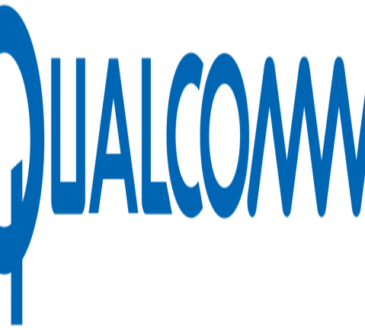Amref Establishes Independent Commission To Review Progress Towards Universal Health Coverage In Africa

By Josephine Akaerr
Amref Health Africa has established an independent commission to review the continent’s progress towards achievement of Universal Health Coverage (UHC) targets by 2030.
The Africa Health Agenda International Conference (AHAIC) Commission on the State of UHC in Africa will, in addition to reviewing the continent’s progress, provide recommendations on leadership, accountability, technology/innovation and health security, to help guide the continent towards achieving UHC targets.
The independent body will deliver its mandate through 11 commissioners selected from a range of disciplines and sectors across Africa; global experts and thought leaders who will provide valuable guidance, engage with key stakeholders and collate data to provide an accurate overview of African nations’ collective advancement towards UHC. The commissioners will also spotlight pressing challenges faced by different countries and work closely with governments, policy shapers and implementation teams to navigate them effectively for the delivery of health services to all.
The AHAIC Commission’s immediate focus will be the production of a State of UHC in Africa Report. The report will provide a detailed account of steps taken by African governments to achieve UHC in their countries, reflecting on successes, barriers and lessons learned on the journey towards providing equitable access, quality health care and financial protection as envisioned within an African context. The findings of the report will be delivered at the fourth edition of the Amref-sponsored AHAIC Conference, which will be held from 8th to 10th March 2021.
‘‘The commissioners have a big task ahead of them. With only three months to the AHAIC Conference, they will be working with a multi-stakeholder team and employing various research methodologies to develop and deliver a comprehensive report that will inform subsequent UHC discussions in Africa. The report will serve as a reliable roadmap and reference point on progress made so far, as viewed through an African lens,’’ said Global CEO, Amref Health Africa and Co-Chair, UHC 2030 Steering Committee, Dr. Githinji Gitahi.
Commenting on the selection criteria, Dr. Gitahi noted: ‘‘The selection committee has assembled a youth- and gender-inclusive commission that reflects the rich diversity of the continent and brings together experienced, versatile, well respected global health experts from across Africa.’’
The AHAIC 2019 resolution to achieve health targets through increasing access to health services; improving the effective delivery of quality health services; establishing mechanisms to guarantee adequate and sustainable public-led financing, and strengthening people-led accountability to safeguard transparency and efficiency at all levels.
African countries’ commitment to the attainment of UHC must be followed by action, reflection, and more action. Progress will fundamentally hinge on genuine and sustained political action. This commission intends to help us all reflect on Africa’s UHC progress, successes and challenges, and articulate areas of action to accelerate progress,’’ noted Prof. Edwine Barasa, one of the Co-Chairs of the Commission.
The Commissioners include:
(Co-Chair) Solange Hakiba (Rwanda), who is experienced in working with various donor agencies, including USAID, DFID, the Global Fund to fight AIDS, Tuberculosis and Malaria and Bill & Melinda Gates Foundation.
(Co-Chair) Prof. Edwine Barasa (Kenya), who serves as the Director of the KEMRI-Wellcome Trust Research Programme in Nairobi, Kenya and the Head of the programme’s Health Economics Unit. Edwine is also a Professor of Health Economics at the University of Oxford.
Dr. Ama Pokuaa Fenny (Ghana), Senior Research Fellow with the Institute of Statistical, Social and Economics Research (ISSER) at the University of Ghana.
Foyeth Kamdem Eugène Lebrun (Cameroon), a sociologist currently working as a Policy Adviser at Cameroon Baptist Convention Health Board. He also serves as the Secretary of the Christian Health Associations of Cameroon.
Prof. Francis Omaswa (Uganda), Executive Director of the African Centre for Global Health and Social Transformation (ACHEST), publisher of the Africa Health Journal and Chair of the African Health Systems Governance Network (Ashgovnet). He also co-chairs the Independent Advisory Group to the World Health Organization (WHO) Director for the African Region.
Gerald Manthalu (Malawi), Deputy Director of Planning and Policy Development in the Ministry of Health in Malawi. Mr. Manthalu is also the Chairperson of the Health Economics Association of Malawi.
Dr. Karim Bendhaou (Tunisia), who is President, Merck, North and West Africa Operations and heads the Africa Bureau. Dr. Bendhaou is also the Africa Engagement Committee Chair of the International Federation of Pharmaceutical Manufacturers & Associations (IFPMA).
Dr. Lola Dare (Nigeria), an award-winning community physician, epidemiologist, public health practitioner, development consultant and sociopreneur who has worked as a global health advocate for women, girls and young persons for over 30 years. She is also the President, Chestrad Global.
Dr. Onisoa Rindra Ralidera (Madagascar), a medical doctor and expert in advocacy and policy influence on reproductive health and family planning in Madagascar. Dr. Onisoa is also the Country Lead, Options Consultancy Services Limited, Madagascar.
Prof. Shabir Moosa (South Africa), a family physician and President, World Organisation of Family Doctors (WONCA), African Region. Prof. Moosa is also a facilitator of the African Forum for Primary Health Care (AfroPHC).
Dr. Shakira Choonara (South Africa), an award-winning independent public health practitioner and Operation Smile Ambassador for South Africa.



